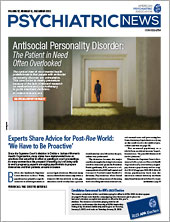I remember my internal medicine rotation. Each day our team trudged up and down the corridors, rounding on patients. When he was admitted, my team briefly glanced at his chart. “Another GI bleed,” the team noted. “He’s just an alcoholic. Call GI for a scope. …” His diagnosis: alcoholic gastritis. We move on to the next patient, and I too was inclined to continue. After all, more admits were soon to come, and I needed to finish putting in orders and contact outside hospitals for medical records. I saw him lying in the hospital bed.
I closely examined his face. His eyes were wet. “What has been going on?” I softly asked, drawing a chair close to his bed. “I know I need to quit,” he sighed. “But I am not sure how. …”
He told me about his time as an ex-soldier, witnessing his friends die. However, most of his nightmares came from his experiences as a police officer. One morning, he received a frantic call about a possible drowning. He saw a young boy and girl floating in the pool. He rushed to save them; their bloated blue bodies lacked any signs of life. He jammed his hands into their chests and forced air into their lungs, performing CPR to help them regain life. They never did.
He was not just an alcoholic; he was “K,” an ex-soldier and a police officer. K was pleading for help, struggling with past trauma. He needed to have close follow-up with a psychiatrist and a therapist.
I was ashamed of myself. I compromised my beliefs. I swore that as a future physician, I would spend time listening and understanding my patients. What happened?
We go into medicine not only because we are fascinated by the science, but for the love of patients’ stories; the deep transcendental connection. Burnout, however, has made this practically impossible.
There are too few medical professionals and too many patients who require absolute attention. There are talks with the pharmacists to ensure that the patient’s medications don’t have any negative interactions. There are calls to the cardiology team to discuss further treatments for heart failure exacerbation. Notes need to be signed, and pages need to be answered. It’s only when all these tasks are completed that we can pull up a chair and sit with the patient.
I need to write because I want to remind myself of my humanity. In medicine, it becomes too easy too quickly to reduce a person to numbers, to a medical diagnosis, while forgetting everything else. Through writing, I am able to reflect on my relationship with my patients, to fully process what occurred and relive the stories.
Not only am I a physician, but I am also a writer. I want to share my patients’ stories. I must also be cognizant not to exploit patient suffering for “cheap thrills.” I am profoundly privileged to be given the opportunity to treat patients. It is my role to actively seek out my patients’ trust and handle their lives with the utmost care and respect. ■

